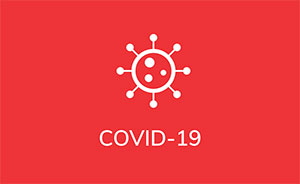The COVID-19 pandemic has created a lot of anxiety for cancer patients, including those with chronic lymphocytic leukemia (CLL). Not only do patients have all the normal worries about living with cancer, but on top of that everyone is also worried about catching COVID-19. A year into the pandemic, the way we see our healthcare professionals and interact with the healthcare system has changed drastically in order to minimize the risk of COVID-19 transmission. Fortunately, doctors have learned a lot about COVID-19 and about how they can help their patients through this challenging time.
At the annual meeting of the American Society of Hematology (ASH) 2020, the CLL Society’s Chair of the Board, Steven Bloom, interviewed Dr. Richard Furman, Director of the CLL Research Center at Weill Cornell Medicine in New York. Dr. Furman addressed some of the common concerns around COVID-19 and discussed selecting CLL therapies during the COVID-19 pandemic.
Takeaways:
- Prevention is key. You should avoid getting COVID-19, so wear a mask, wash your hands, and practice physical distancing.
- Don’t panic. Most patients with CLL who get COVID-19 will be just fine, meaning they will have mild symptoms or be asymptomatic.
- Don’t delay necessary treatment. If you have reached the point where you need to start treatment for CLL, start it. Waiting could potentially make things worse.
- Consider avoiding anti-CD20 antibodies. Anti-CD20 antibodies (e.g., rituximab, obinutuzumab) can impair the immune response and increase risk for related complications. As always, discuss your treatment plan with your doctor.
- Early data suggest that BTK inhibitors may reduce the severity of COVID-19. However, these studies are still ongoing, so we don’t have a definitive answer yet.
- Stay out of your physician’s office if possible. While you certainly don’t want to postpone needed care, you do want to reduce physical interactions when possible. Telemedicine appointments plus local labs are usually sufficient for CLL patients in the watch-and-wait phase.
- Telemedicine visits plus local labs may also be appropriate for many CLL patients who are undergoing long-term therapy. Usually, the first sign of a relapse is lymphocytosis, which would show up on labs.
- If appropriate, use therapies that can be taken and monitored remotely, such as BTK inhibitors (ibrutinib, acalabrutinib) or PI3K inhibitors (idelalisib, duvelisib).
- Get vaccinated for COVID-19. The vaccines have been shown to be safe in a huge number of participants, although we don’t know their efficacy specifically for CLL patients. Encourage those around you to be vaccinated, too, because that is the most important way you can protect yourself.
Conclusions:
While both CLL and COVID-19 can be scary, there are steps you can take to make sure that you receive the care you need in a manner that is safe for everyone. Right now, certain therapies may be better for minimizing the risks associated with COVID-19, and this is something that you should discuss with your doctor to see what is right for you. With more vaccines becoming available and more people getting vaccinated, there is hope on the horizon. We will make it through this.
Please enjoy this interview with Dr. Furman from the virtual ASH meeting held in December 2020.
Take care of yourself first.
Ann Liu, PhD

















